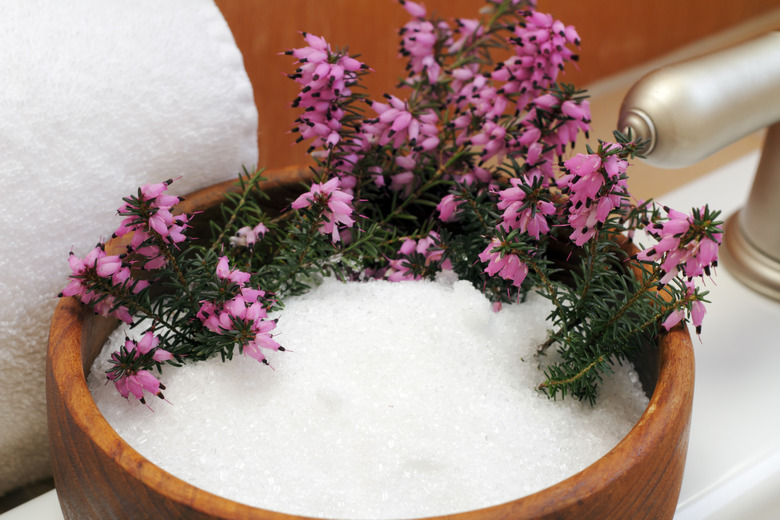Epsom Salts And The Septic Field
Epsom salts poured into a toilet help increase magnesium in the ground of the septic system's leach field. This aids plant growth over the leach field of a septic system. System systems consist of a holding tank and a drainage or leach field. Most biological decomposition occurs in the tank, and solids remain there. Water that empties into the drain field percolates into the soil along with any chemicals dissolved in the water. Epsom salts can have beneficial effects on the soil.
Epsom Salts: A Natural Tonic
Epsom Salts: A Natural Tonic
Epsom salts are named for the region in England where they occur naturally in the well water. Chemically, they are known as hydrated magnesium sulfate, containing about 10% magnesium and 13% sulfur. They are known for their soothing effects on the skin, and research has shown them to have beneficial effects on plants as well.
Good for the Drain Field
Good for the Drain Field
Pouring magnesium sulfate – Epsom salts – into a septic system via a toilet or sink drain isn't likely to have any effect on bio-degradation in the tank. But when it reaches the drain field, the salts raise the concentration of magnesium in the soil more efficiently than commercial soil amendments, and this can have a beneficial effect on the plants and grasses that are growing there. Plants that are especially likely to benefit include tomatoes, peppers and roses.
Cite This Article
MLA
Deziel, Chris. "Epsom Salts And The Septic Field" sciencing.com, https://www.sciencing.com/epsom-salts-septic-field-6469225/. 13 March 2018.
APA
Deziel, Chris. (2018, March 13). Epsom Salts And The Septic Field. sciencing.com. Retrieved from https://www.sciencing.com/epsom-salts-septic-field-6469225/
Chicago
Deziel, Chris. Epsom Salts And The Septic Field last modified March 24, 2022. https://www.sciencing.com/epsom-salts-septic-field-6469225/
